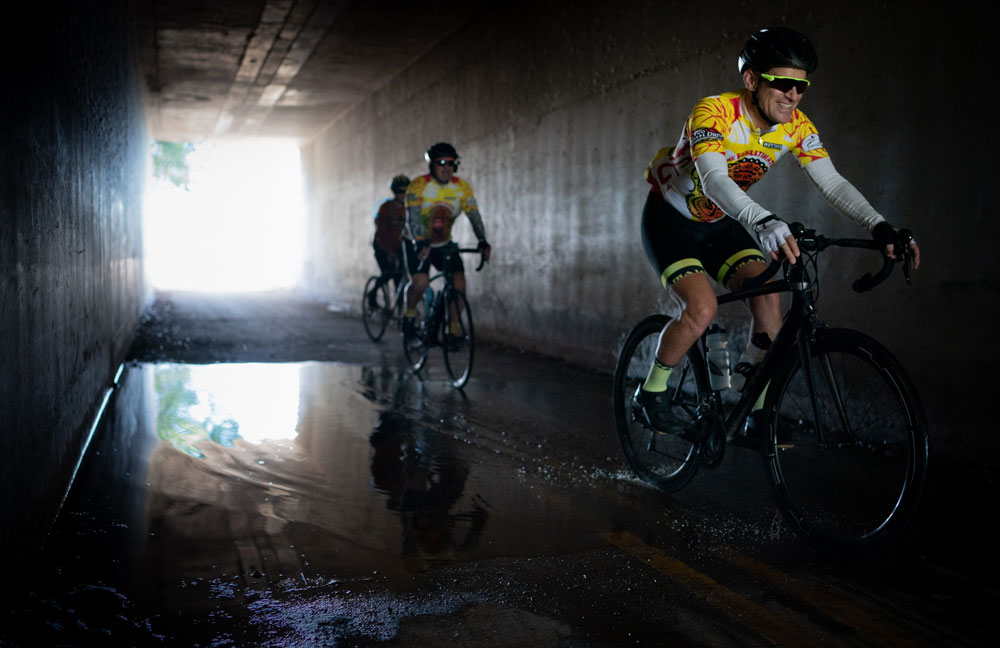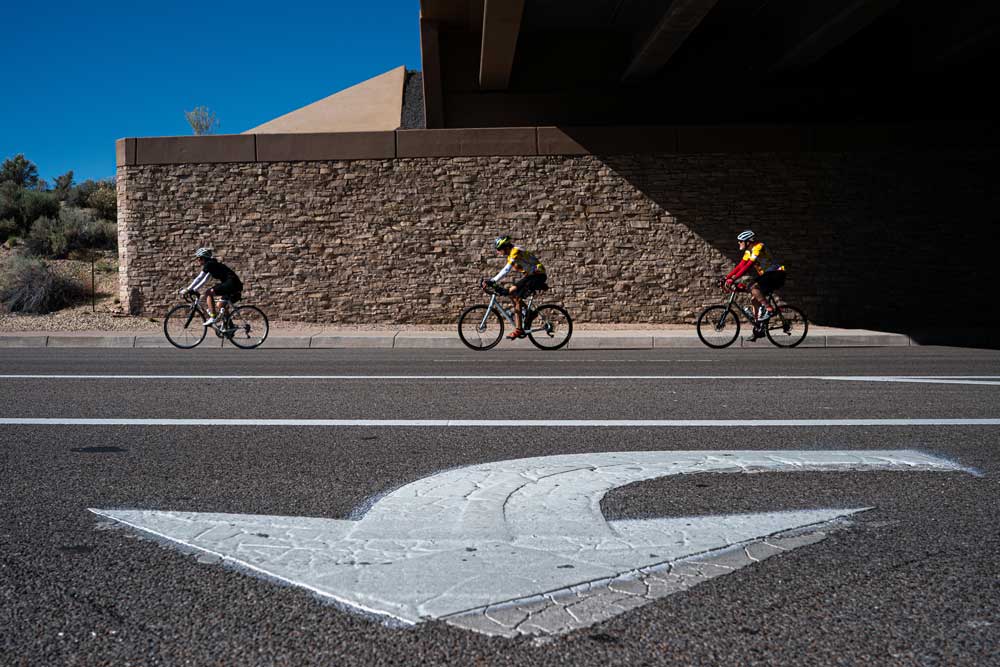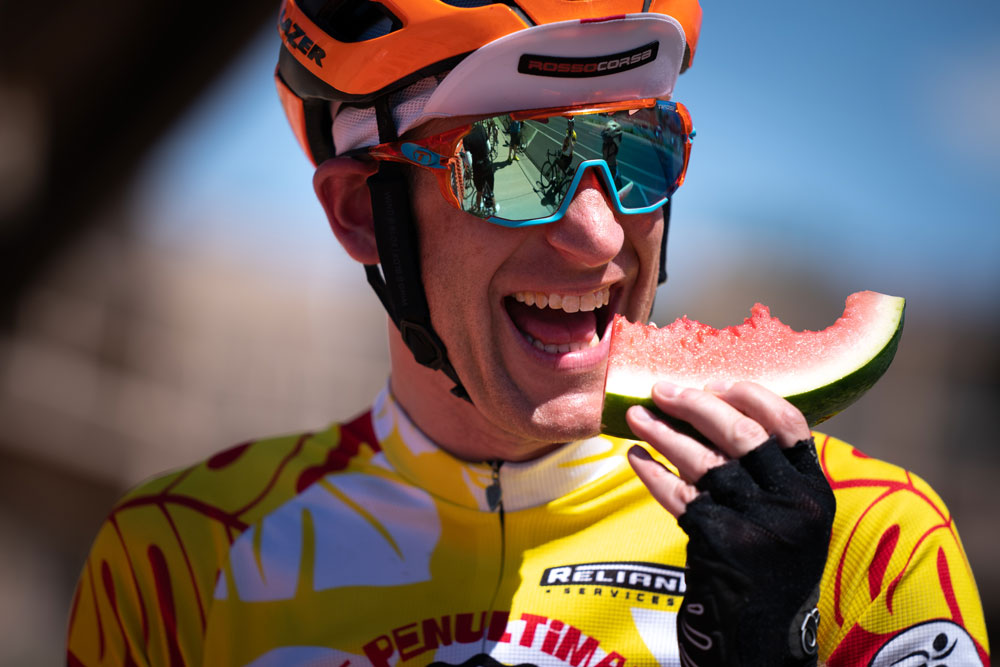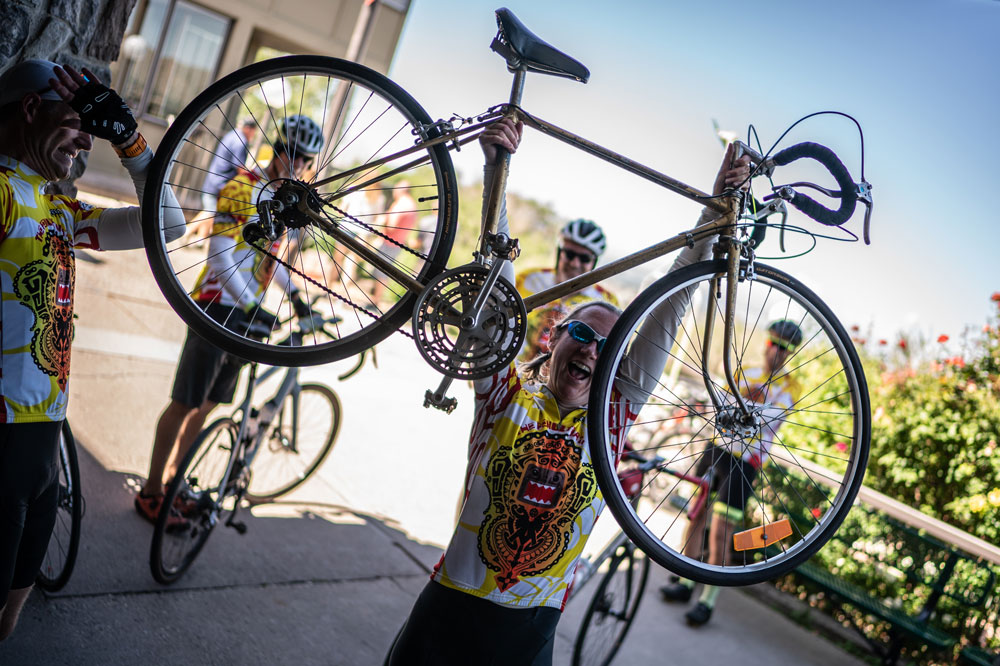Sandia cyclists find support, fun in yearly ride

Since 2010, some dedicated Sandia cyclists have been rising before the sun on summer weekends to meet and train for an annual ride that supports multiple sclerosis research.
Last Saturday, team members who participated in their weekly training ride completed nearly 60 miles. By the end of the summer, many of them will complete the century ride distance — 100 miles in one day — followed by another day of riding 50 miles for the Bike MS ride weekend in Albuquerque.
The team, The Penultimates, has nearly 30 riders. Participants in the Bike MS ride must fundraise a minimum of $250 for the MS Society. Many of the team’s riders pay that as a donation while others raise more than $3,000 every year, said cybersecurity researcher and Penultimates team leader David Scrymgeour. On average, the team raises $30,000 per year for MS research.
“We’ve now raised an accumulative total of more than $300,000 over the years and that’s something we’re pretty proud of,” David said.

David, who learned he has MS in 2007 as a Sandia Truman Fellow, said it’s an often-invisible, lonely disease. It’s a chronic, unpredictable illness that impacts the brain and spinal cord, which make up the central nervous system. Symptoms of MS can include numbness, tingling, mood changes, memory problems, pain, fatigue, blindness and paralysis, according to the MS Society website. There is no cure for MS, but treatment options can reduce its severity. The website says everyone’s experience with MS is different, and symptoms may be temporary or long lasting.
“It’s one of these things where, you may not be aware, but you probably know someone with MS,” David said.
Two years after his diagnosis, David and his wife planned to ride Bike MS together, but his wife got pregnant, and he completed the ride alone while she volunteered at a rest stop.
“Participating in the ride was the first time that I had really acknowledged to anybody else that I had MS. Most of the volunteers and riders have some connection to MS and there were even a few riders who had MS and I wouldn’t have known,” David said. “At the time, I thought, ‘Maybe life is not over.’ I’ve done the ride every year since.”
David formed the Penultimates team the next year and many of riders came from the Labs. He said the team has always been composed of more than 50% Sandia employees; the rest of the members are their families and friends. David said the ride is about doing something together for a cause that is personal to many members. The team also supports a rest stop on the second day of the event that is primarily manned by Penultimates’ spouses and children.

“I’m going to do this as long as I’m physically able,” David said. “There are a lot of other people who ride in the event who say the same thing. Some have a pretty severe disability at this point and ride on hand cycles or trikes. It’s so welcoming and that’s why people keep returning.”
Sandia competitive intelligence specialist Kelli Howie began riding with the team a few weeks after she was hired at Sandia in 2019 and said the group has become like family.
“They are the people I call when I have an actual emergency and need a close friend to help,” she said. “It’s interesting because I end up working with so many people on this team on other causes at Sandia, whether it’s part of the Sandia Women’s Action Network committee or the peer mentoring network. I always say if you’re working on a heartwarming cause at Sandia, you may also be a Penultimate.”
Sandia employees who want to ride in Bike MS do not have to be part of the Penultimate team. They can also ride alone, form their own teams or join any number of local riding groups who participate. However, for those looking for a group that won’t leave anyone behind during training rides, David said the Penultimates is a great option.

“If you can ride a bike, great. We want to share that love of biking with you,” he said. “Maybe you’re not training up to 100 miles. Maybe you’re working up to 8 — that’s OK.”
This year’s Bike MS takes place Aug. 27-28 in Albuquerque. Routes range between 8 and 100 miles. In addition to the $250 fundraising commitment, there is an additional ride participation fee, which is currently $60 but increases monthly as the event approaches.
The MS Society is always looking for new riders and volunteers to help rebuild and grow the ride that was negatively affected by the pandemic, David said.
Anyone who would like to join the Penultimates or volunteer for the ride can contact David for more information. Saturday rides are listed on the team blog and include maps for each week’s ride.